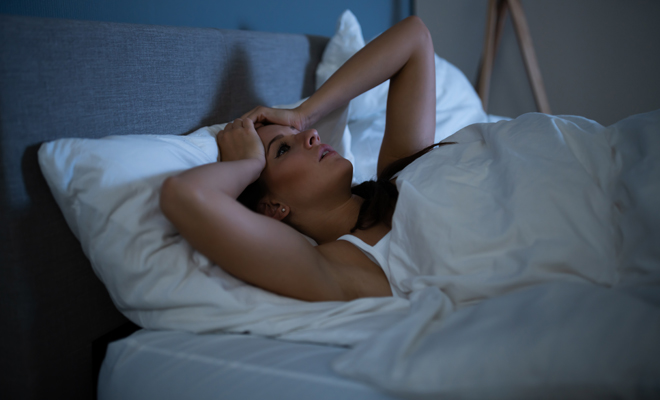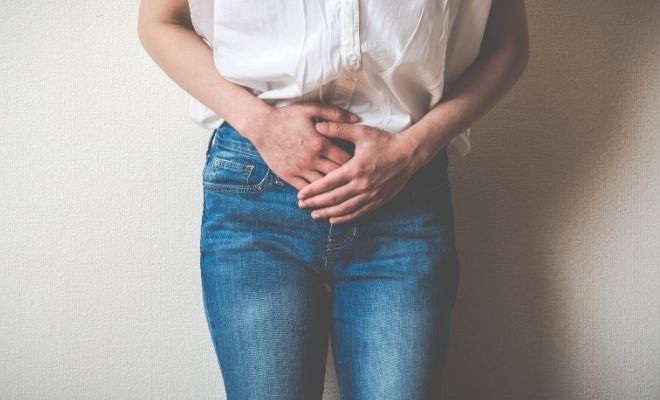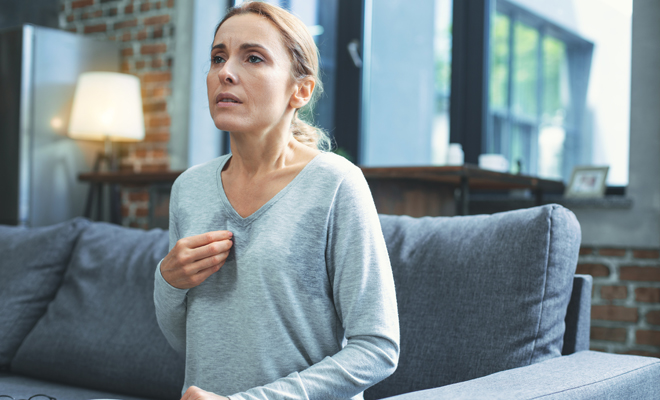Does anxiety not let you rest? There are many people who experience sleep due to anxiety, and it is highly recommended to know how this lack of sleep arises, what its symptoms are or how it can be treated to improve the quality of life. We talk about insomnia as a symptom and consequence of anxiety, do you dare to discover how to combat it?

What really is insomnia?
Lack of sleep is considered a global problem that significantly reduces our quality of life. The World Health Organization (WHO) estimates that 40% of the population has or will have, at some point in their lives, insomnia. In addition, according to the Spanish (SES), insomnia is the most frequent sleep disorder in the general population.
But what really is insomnia? This is defined, according to the DSM-5 (Diagnostic and Statistical Manual of Mental Disorders) as a predominant dissatisfaction with the quantity or quality of sleep, associated with one (or more) of the following symptoms:
- Difficulty initiating sleep. In the case of children, this may be manifested by difficulty initiating sleep without caregiver intervention.)
- Difficulty staying asleep, characterized by: Frequent awakenings or trouble getting back to sleep after waking up.
- Waking up early in the morning with inability to go back to sleep.
When insomnia appears due to anxiety, or an anxiety disorder, then we speak of anxiety insomnia. Anxiety, for its part, is a state of mind and body characterized by a great feeling of internal restlessness, intense excitement and a great feeling of insecurity.
Anxiety insomnia: what is it?
According to an article, lack of sleep or insomnia is a very frequent disorder, which is due to various causes such as stressor environmental and/or emotional factors. In the case of anxiety or anguish, we are talking about a state of restlessness that usually accompanies, although not always, certain acute illnesses. Both disorders and symptoms often appear at the same time, and then we talk about anxiety insomnia.
Anxiety insomnia appears precisely because of this feeling of anguish, tension, motor and/or mental restlessness, as well as restlessness and fatigue, which does not let us sleep at night. Thus, anxiety itself can cause difficulties (onset insomnia), in maintaining it (maintenance insomnia) or in sleeping until the time we want (when we wake up very early and can no longer sleep, in the terminal insomnia).
However, most often, anxiety causes initial insomnia, since this state of hyper activation typical of anxiety, added to the worries that we think about when we go to bed, would make it so difficult for us to sleep.
How does anxiety insomnia appear?
We have to think that insomnia arises from different causes, but when it arises from anxiety, it is activated by a series of mechanisms, especially related to thought.
When we suffer from anxiety, we suffer from a series of symptoms characteristic of it both at a behavioral, emotional or psychological and physiological level. All of these symptoms can contribute, in one way or another, to making it very difficult for us to fall asleep at night.
Recurring worries or thoughts in anxiety
Returning to the point of thoughts, we know that people with anxiety tend to ruminate a lot, anticipate the future (usually in a negative way) and dwell on worries.
If we do this right when we go to sleep, it will be very difficult for us to get to sleep. And if this routine is repeated over time, we will acquire the “bad” habit of thinking about everything every night, and our mind will associate the bed with the difficulty to fall asleep.
To break this circle, it will be advisable to start practicing some thought-stopping techniques that allow us to disconnect from those looping thoughts. Relaxation, breathing and visualization techniques are also beneficial, through which we can reduce the levels of activation that anxiety causes us, as well as obsessive or recurring thoughts.
Over activation of the organism (vs. state of relaxation)
On the other hand, anxiety also causes physiological symptoms that may be at the root of our insomnia. These symptoms over activate our sympathetic nervous system, which makes us feel tense, nervous and with a great internal restlessness. This, in turn, would make sleep difficult, because activation or anxiety is the antagonistic response to a state of relaxation, a state that facilitates sleep.
Thus, by not feeling relaxed, we will have difficulties falling asleep (initiation or conciliation insomnia), to maintain it during the night (maintenance insomnia) or to maintain it until the desired time, waking up before the hour and unable to go back to sleep (terminal insomnia).
The most common symptoms of anxiety insomnia
Thus, in anxiety insomnia symptoms of insomnia and those related to anxiety appear.
Associated with anxiety we find:
-Strain.
-Fatigue.
-Concern.
-Recurring or obsessive thoughts (getting into a “mental loop”).
-Concerns.
-Nervousness_
And associated with insomnia itself:
-Difficulty or inability to fall asleep or stay asleep.
-Frequent awakenings during the night.
-Feeling of not resting well (getting up tired in the morning).
Anxiety insomnia treatment
The treatment of insomnia due to anxiety involves treating the underlying anxiety. There are different beneficial techniques to reduce anxiety levels: relaxation techniques, breathing techniques, mindfulness, following healthy lifestyle habits, cognitive restructuring to modify anxious thoughts, etc.
However, we can also treat insomnia, since sometimes when it is resolved, anxiety is also resolved (or at least, it decreases). Because? Because when we have anxiety and we can’t sleep, the anxiety increases, and if we manage to sleep better, the anxiety also improves.
According to the article, in the, general therapeutic measures are aimed at reducing the patient’s anxiety regarding the problem and establishing sleep or regular habits (sleep hygiene).
These habits include a good relationship with the professional, a regular bedtime and wake time, avoiding reading or staying in bed if sleep does not appear within 30 minutes, regular physical exercise(but not right before bed), and psychotherapy. On the other hand, it is also important to reduce the abuse of alcohol and other drugs. At the pharmacological level, anxiolytics are usually used when necessary, always under medical prescription.
If you suffer from insomnia due to anxiety, it is likely that you have noticed how your daily functioning is being affected, as well as your emotional well-being. Rest is essential to function in our day to day and to feel good.
Think that the more you think about the subject without asking for help, the more likely it is that the problem will continue, because anxiety levels will increase and with them, insomnia. It’s like a vicious circle; the more you think about your anxiety, the harder it will be for you to sleep, which in turn will increase your anxiety levels.
That is why it is important, first of all, to identify what is causing us this anxiety in order to address its cause and, little by little, learn to manage our anxiety, whether through sports, meditation or other techniques such as relaxation. And above all, if we feel that we cannot be alone, ask.






